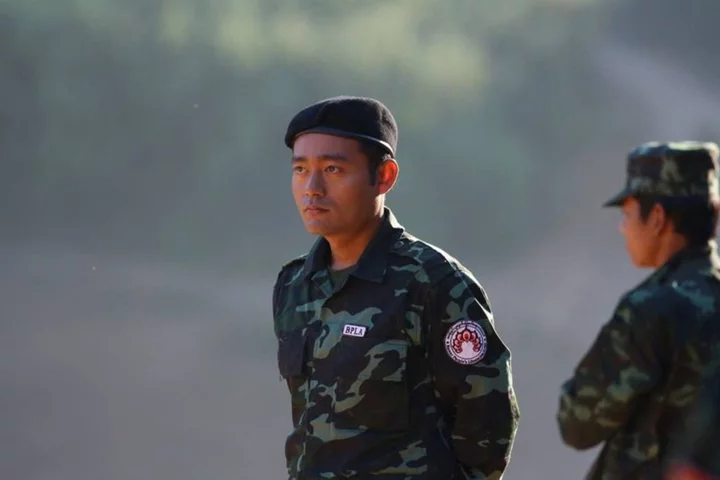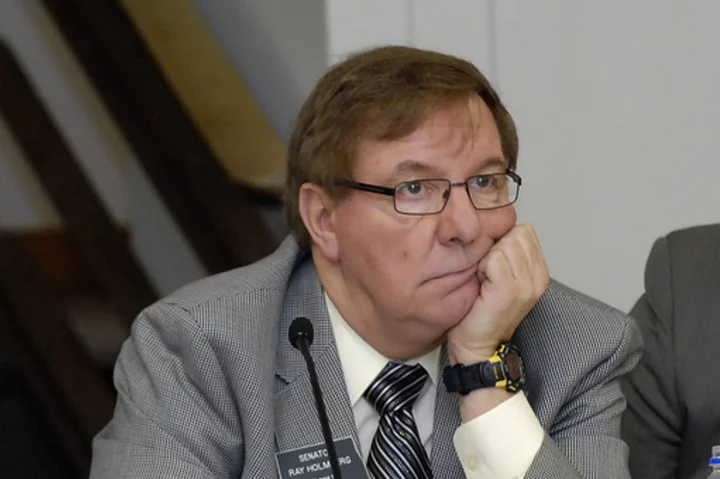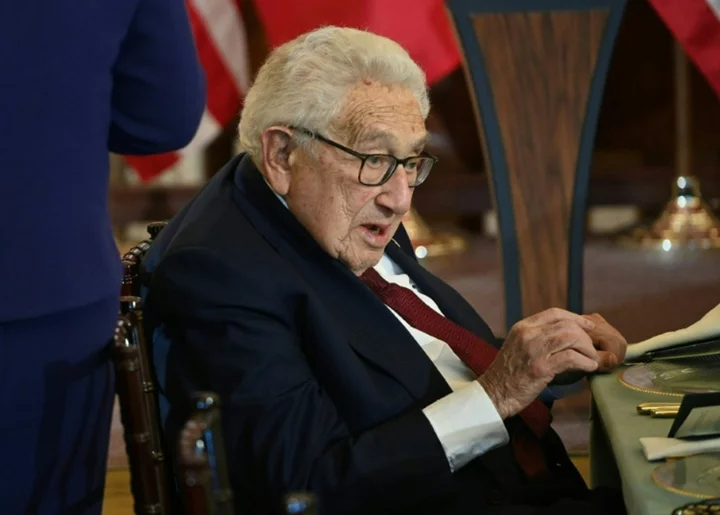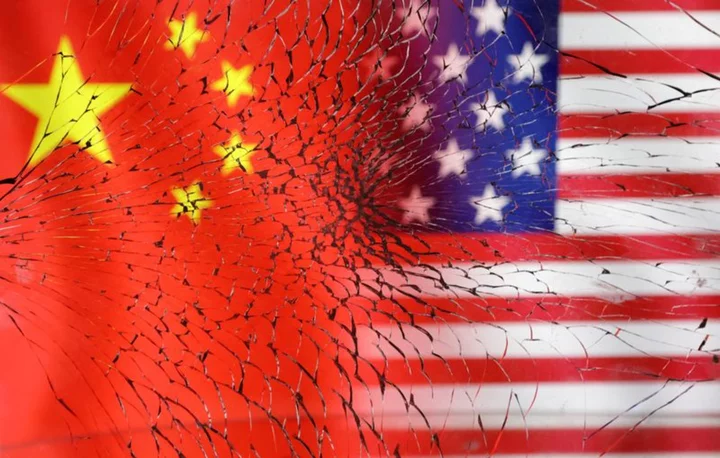By Shoon Naing and Poppy McPherson
Poet turned militia leader Maung Saungkha, one of the most prominent figures fighting for democracy in Myanmar, says his armed group plans to start carving out territory in the country's heartlands to confront the junta more directly.
Maung Saungkha said the move is a key strategic aim for his Bamar People's Liberation Army (BPLA) - a militia formed in the wake of the junta's February 2021 coup - now that it has gained training from allies and battle experience in the country's borderlands.Most BPLA members are Buddhist Bamars, the ethnic group that accounts for two-thirds of the population and dominates central Myanmar where government institutions are based.
"For an army formed from Bamar people, it's an important part of our vision to be based in a Bamar region and to be active there," the 30-year-old commander said via text from his jungle camp near the border with Thailand.
Maung Saungkha said the BPLA wants to work with the People's Defense Forces (PDF) - the armed wing of the National Unity Government formed from the remnants of Aung Sang Suu Kyi's administration that is seeking to supplant the junta. The PDF is comprised of hundreds of militias, many of which are mostly Bamar.
The Myanmar-based Institute for Strategy and Policy estimates the BPLA has some 1,000 members - a figure that would make it one of the country's biggest new militias.
The BPLA's growth owes much to Maung Saungkha's skills in building bridges with other armed groups, according to a key ally and two analysts. It also underscores how new militias have become entrenched in Myanmar's political landscape, even if they are far from toppling the junta.
The National Unity Government, which provides the BPLA with some food support, said that to rebase centrally the BPLA would have to negotiate with its defense ministry to ensure smooth cooperation with PDF troops.
The junta did not respond to requests for comment for this article. It says armed groups that oppose it are "terrorists" who sow chaos and kill civilians. It has charged Maung Saungkha with sedition as it has done with most opponents of its rule.
Maung Saungkha and the BPLA's political officer, Yoe Aunt Min, said the fight against the junta would be long and acknowledged the BPLA faces significant challenges - particularly funding and waning motivation to keep fighting among some recruits.
Bamar dominance has long been resented by Myanmar's many minorities but Maung Saungkha's background has helped the BPLA forge strong ties with other ethnic armed organisations, delicate work seen as critical for the resistance.
Before the coup, he was a poet who had been jailed for a verse that lampooned authority, who then became a high-profile activist, advocating for equality for minorities and federalism.
That track record has given the BPLA "ideological heft", said Richard Horsey, senior Myanmar adviser at the think tank Crisis Group.
FROM BB GUNS TO AK-81s
The BPLA was founded two months after the coup in Myanmar's borderlands, with Maung Saungkha seeking training and support from ethnic armed organisations that have been fighting for decades for greater autonomy.
At first, the BPLA only had wooden guns and BB guns to train with, but today they own some M16 rifles and AK-81s and borrow other weapons from allies, according to Maung Saungkha.
The BPLA works closely with the Karen National Union (KNU), on whose territory it is based, and the Arakan Army (AA) which provided training, he said.
Both groups confirmed the BPLA was fighting alongside their troops.
Resistance forces have inflicted significant damage on the junta and gained territory, said Nicola Williams, analyst at the Australian National University's Myanmar Research Centre.
But, to have greater impact, they need to move "beyond creating confusion and disorder" in urban areas and work together to seize strategic sites, she said, adding their efforts were impeded by competition between armed groups for weapons and resources.
Brigadier General Nyo Tun Aung, the AA's deputy commander-in-chief, said in a letter to Reuters that Maung Saungkha has built "good and close relationships" with leaders of "ethnic revolutionary organisations."
The BPLA had earned support by developing "the same revolutionary heartbeat", Nyo Tun Aung wrote.
Yoe Aunt Min said the many militias operating in Bamar-majority areas meant the BPLA couldn't easily become active there but it had several options.
In addition to reaching out to work with PDF troops, it could send in small drone-operating units, she said.
"We've also received requests to train others, so we might start off as trainers," she added.
FUNDING AND MORALE PROBLEMS
Although the BPLA has support from allies for food and other supplies, Maung Saungkha said funding is a constant concern.
Some armed ethnic groups have long relied on drug trafficking for funds, according to the United Nations Office on Drugs and Crime. But the BPLA says its only independent financing comes from donations, sales of BPLA-branded hoodies and merchandise, and Maung Saungkha's poetry books. Reuters was not able to independently confirm this.
By contrast, China and Russia arm the junta, according to the UN, which has accused Myanmar’s military rulers of being responsible for arbitrary airstrikes, mass killings and extra-judicial executions. The junta has said it is carrying out legitimate operations against "terrorists".
Some soldiers have run away, homesick, bored and tired after two years of war, said Maung Saungkha, who declined to disclose how many members are in his group.
"This year, ephemeral revolutionaries will rush home...now it's just the qualifying stage. There are still many battles ahead," he said.
(Reporting by Shoon Naing and Poppy McPherson; Editing by Edwina Gibbs)









